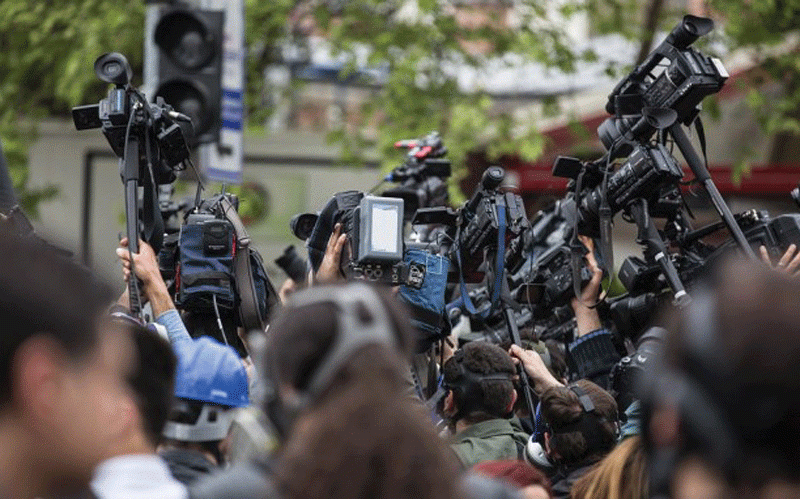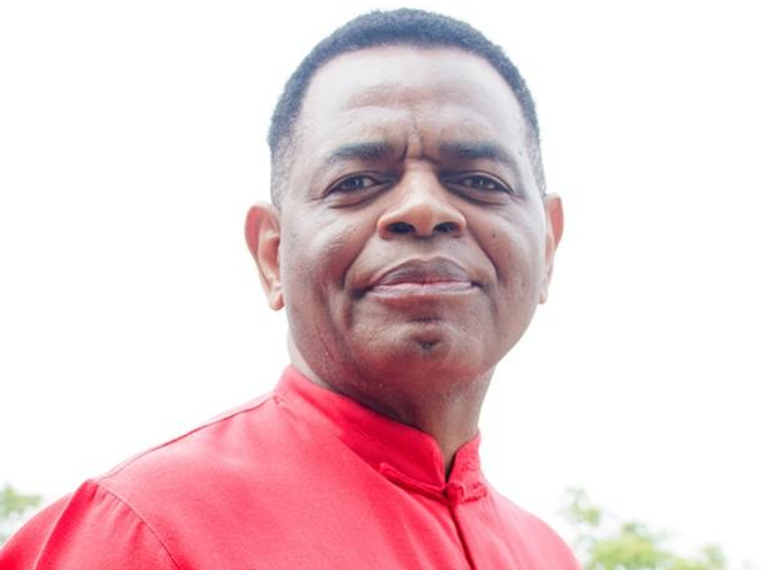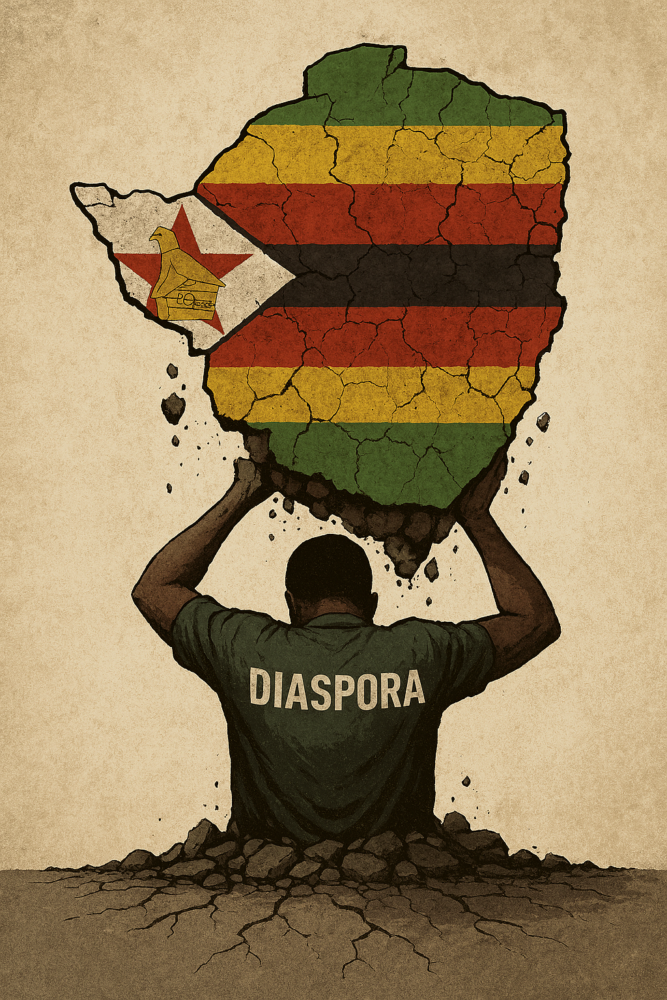
IN 1789, there was Queen Marie-Antoinette, a woman who was the immediate cause of the French Revolution.
Some 235 years later, in Zimbabwe, there is the First Lady Auxillia Mnangagwa, a woman who can’t get enough of herself in the public or State-controlled media.
The example may look far-fetched, but in more than a dozen ways are closely similar.
Both engrossed with looking glam and dolled-up.
More importantly, both more powerful recognising themselves as the cog that drives the State.
This week, the First Lady had more than 30 pictures of herself plastered in the State media, The Herald to be exact.
In fact, in the Tuesday edition, she had two pages devoted to her petty philanthropic and gastronomy projects.
By any measure, it was an overdose of adulation and veneration of a mere mortal.
- Redefining public media
Keep Reading
I tweeted: “Today’s #Herald has 18 pictures of #FirstLadyMnangagwa in the same edition. This is an #overkill cdes!!”
Little did I know that similar sentiments were harboured by many in Zimbabwe.
In less than 24 hours, the post had 2 823 organic views, nine retweets and 16 likes.
The issue is not that the First Lady should not get public media coverage, but that it has to be measured and limited to real issues, particularly at this moment when the country has so many issues it is grappling with.
These issues range from a public health system in comatose, grinding starvation, no running water in taps as well as rolling electricity blackouts and they deserve space too in the public media.
The Herald is not alone in its mischief, it is joined by ZBCtv.
On Monday, the State-controlled broadcaster had three-quarters of its main news bulletin filled with stories about President Emmerson Mnangagwa and the First Lady.
Media and communications scholar Blessing Vava tweeted: “Watching @ZBCNewsonline at 8 left me wondering, 3/4 of the stories were about @ZimFirstLady & @edmnangagwa. We are in North Korea.”
The observation is apt, ZBC has this nauseating attitude of starting its bulletins with the statement: “The Head of State, Head of government and the commander-in-chief . . .” every time they report on the President.
It seems like they have to constantly remind Zimbabweans who the President is.
The bottom line is that the State-controlled media has lost the plot and has to regain its bearings.
They have been reduced to party-propaganda parroting.
Let’s try to put this in context. Media scholars argue that public broadcasters are owned and supported by the general public.
The television licence is paid by the general public, financing all of the general public broadcasters.
This is different from commercial broadcasters that are privately-owned and finance themselves through advertisements.
These differences have to be noted and internalised by the listening or reading audiences.
The scholars further argue that the public and private sectors differ in terms of their objectives, operations and impact on society.
The public sector is driven by public interest and aims to provide essential services, while the private sector focuses on innovation, competition and profit-maximisation.
It is worth restating the above: the public sector is driven by public interest and aims to provide essential services.
Probably posing a question may put people into discomfort.
Is Mnangagwa and Auxillia Zimbabwe’s biggest public interest and essential services of the day that they deserve such acres of space in public media?
The answer is an emphatic “NO”. There are many other public interest issues and essential services that deserve space in the public media as earlier argued.
A comparison would suffice to drive this point home.
Watching the BBC, SABC or Nordic countries public broadcasters amply demonstrates this.
To many, it may seem as if the countries have no governments or elected leaders. They cover public interest issues.
A fraction of Zimbabweans only know at most the names of the seven Olympians at Paris 2024.
The public media did not do its duty to speak to issues of public interest.
It was left to individual schools to announce that the athletes were their former pupils.
Bryden Country School made the announcement when swimmer Paige van der Westhuizen won her heat in the pool.
It posted on its Facebook page: “School was cancelled for 60 sec today as we supported our alumni Paige!!! Well done, Paige!!! You did it!!! We could not be prouder!!!”
My interest was piqued to know more about this school. I did not need to do much, I simply looked at how the school describes itself on Facebook.
It says: “Bryden is a single stream school with an average of 12 boys and 12 girls in a year. A high staff–pupil ratio ensures each pupil receives the interest and attention they need in the classroom and on the sports field.”
These are the stories of public interest. They enjoin us to celebrate the success of our fellow countrymen and women, but also educate us on our realities that people may tamper with their ambitions.
The media, for example, has profiled great black sportspersons like golfer Tiger Woods and tennis superstars Serena and Venus Williams.
The public are now aware of what sacrifices they made from an early age to make them champions.
The stories of the adversities they faced like overt and covert racism, how they struggled to finance their participation in tournaments or even that it was their parents who coached them for the greater part of their careers.
The public media should reform itself, not only during election periods, but every other day.
It has to give diversified coverage of issues in our country both the good and the ugly.
They have to give equitable coverage to different communities political and otherwise, and above all broadcast sports, documentaries, sitcoms and telenovelas that represent Zimbabweans. After all, they are publicly funded.
It is not in doubt that the public media coverage of the First Family is an overdose and that they are not the only public interest issue in Zimbabwe.
Keeping them in the spotlight has negative repercussions, especially in a country grappling with many ills and few feel good stories.
I’m out!
- Paidamoyo Muzulu is a journalist based in Harare. He writes here in his personal capacity.











